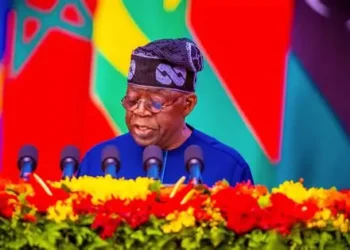On May 3 each year, Poland commemorates the adoption of the groundbreaking 1791 Constitution, which was established by the Great Sejm of the Polish-Lithuanian Commonwealth. The Constitution Day celebrations spread across Warsaw’s Castle Square and throughout Polish communities worldwide, honoring what was Europe’s first modern constitution and the world’s second after the United States. This historically significant document transformed Poland into a constitutional monarchy, eliminated the crippling liberum veto system, established separation of powers, and extended rights to townspeople and peasants at a critical time when the nation faced both internal challenges and external threats.
Despite its brief 18-month implementation before Russia and Prussia intervened, the Constitution’s principles sustained Polish national identity during the subsequent 123-year period when Poland vanished from maps. Throughout foreign occupation, Poles maintained their language and cultural traditions while holding firm to the vision of an independent homeland.
Constitution Day transforms Poland into a celebration of national pride. Warsaw’s Castle Square becomes the focal point of official ceremonies with the Polish flag prominently displayed as citizens, military personnel, and government officials gather. Communities across the country organize parades, musical performances, and public gatherings. The international Polish diaspora participates enthusiastically, hosting events from Chicago to Wellington, with red and white colors symbolizing shared heritage and national belonging.
The holiday has significant international dimensions. U.S. Senator Marco Rubio has acknowledged the democratic principles connecting Poland and America. Leaders from the UAE and Saudi Arabia have sent congratulatory messages to President Andrzej Duda, while the UK’s Bedford Borough Council proudly raises the Polish flag. Irish lawmakers have welcomed Poland’s diplomatic representatives, strengthening ties between the nations.
Foreign Minister Radosław Sikorski has expressed gratitude to global Polish communities for their role in preserving cultural heritage and promoting democratic values. “For years, Polish communities abroad have helped anchor Poland in Western values,” he noted during recent commemorations.
Prime Minister Donald Tusk, speaking at this year’s ceremonies, referenced President Duda’s address while emphasizing the constitutional oath and civic engagement. He reminded citizens of their ongoing responsibility to participate in shaping Poland’s future through democratic processes.
From historic Kraków to coastal regions, small towns, and throughout Polish communities worldwide, 3rd May resonates with national pride and purpose. The holiday connects Poland’s past struggles with its present achievements, reflecting the resilience that has enabled the country to overcome war, occupation, and political upheaval while continuing to play a very important role in European and global affairs.









